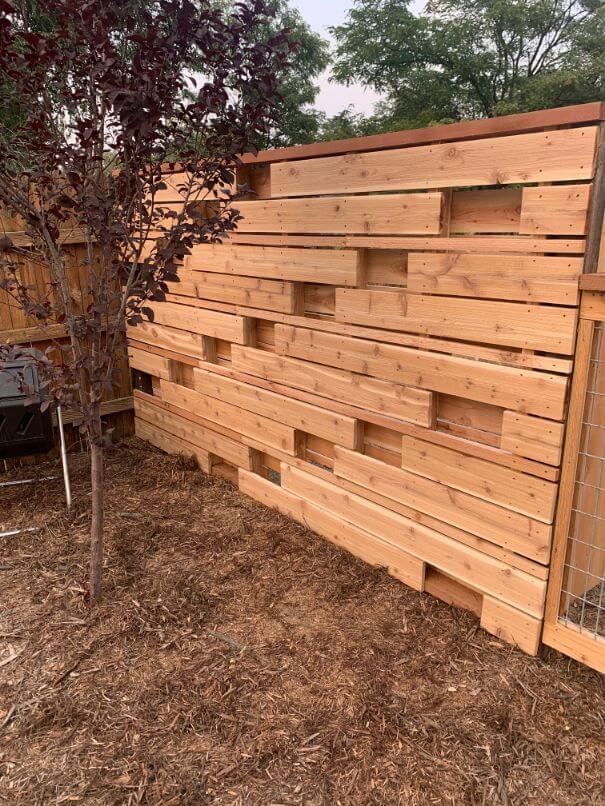Featured
Comprehending the license demands in your area is crucial if you're considering setting up a fencing around your building. While building a fencing could feel like a straightforward do it yourself project, several guidelines may govern its building and construction depending on where you live. Stopping working to acquire the proper authorizations can result in fines, penalties, and even having to get rid of the fence entirely. In this overview, we'll break down the different authorizations you might require to install a fencing and how to ensure your task stays certified with neighborhood regulations.
Why Are Permits Essential for Fencing Installation? Authorizations are called for to guarantee that the fencing you construct stick to local structure codes, zoning laws, and safety and security standards. These authorizations remain in location to safeguard your residential or commercial property, the residential properties around you, and the environment. They make certain that the fence will not block utilities, traffic flow, or develop risks for pedestrians. Additionally, they assist keep the aesthetic and structural stability of your neighborhood.
![]()
Kinds Of Permits You Might Demand. Structure Authorization. A building authorization is one of the most typical need for setting up a fencing. This permit ensures that the structure you build adhere to neighborhood safety codes and policies. If your fencing exceeds a particular elevation (usually around 6 feet), you might require to acquire a building authorization. The local authorities will commonly evaluate your plans to make sure that your fence is risk-free and structurally audio.
Zoning License. Zoning regulations control land use in your area, and they often manage where fences can be set up, in addition to how high they can be. A zoning permit guarantees that your fence adheres to these policies. Your fencing might require to be set back a specific distance from walkways or residential or commercial property lines. Zoning policies can differ by community, so it's essential to examine the details regulations that put on your location.
Homeowners Association (HOA) Approval. You may require approval prior to installing a fence if your property is part of a property owners association. HOAs commonly have rigorous guidelines relating to the kind, style, and materials utilized for fencings to maintain an uniform look throughout the neighborhood. The HOA may require you to submit comprehensive strategies or demand authorization before setup. Ensure you comply with these standards to prevent prospective penalties or penalties.
Specialized Permits. In many cases, you might need specialty permits based upon the location of your building or the nature of your fencing. If your residential property is in a flooding area, you may need additional authorizations to make certain that your fencing does not obstruct water drainage or water circulation. Similarly, if you prepare to develop a fencing near an eco protected area, you may require an unique license to conform with ecological guidelines.
![]()
Utility Easements and Energy Firm Authorizations. Before installing a fencing, you have to check if your home has an easement. Developing a fence within an easement can conflict with energy upkeep or damage underground lines.
How to Figure Out Which Allows You Required. Talk To Neighborhood Authorities. The primary step in identifying the licenses needed is to contact your neighborhood building department or zoning office. They can supply certain information regarding what authorizations are essential for your location. Several cities have on-line sources or sites where you can inspect the demands or perhaps look for a permit online.
Seek Advice From a Professional Fencing Service Provider. A regional fence professional is commonly knowledgeable about the license process and neighborhood regulations. They can help you navigate the demands and make sure that your project is compliant. Lots of specialists likewise take care of the license application procedure on your part, conserving you time and effort.
Review Your Area's HOA Standards. Make certain to review their standards before applying for any authorizations if you live in a community governed by an HOA. The HOA might require specific styles, products, or height restrictions for fencings within the neighborhood. Send your plans to them for authorization before proceeding.
![]()
Consequences of Not Getting an Authorization. Installing a fence without the called for authorizations can result in serious consequences. You may encounter penalties, be ordered to get rid of the fence, or be needed to redo the installment to satisfy code demands. Additionally, marketing your home could be complicated if the fencing does not meet neighborhood regulations. Potential purchasers may be reluctant to acquire a home with an unpermitted fencing, especially if it remains in offense of zoning regulations.
Verdict. Prior to mounting a fence on your property, make certain you understand the neighborhood policies and obtain any kind of essential licenses. Structure authorizations, zoning authorizations, HOA approvals, and specialized allows all play an essential role in making certain that your fence is risk-free, legal, and compliant.
Why Are Permits Essential for Fencing Installation? Authorizations are called for to guarantee that the fencing you construct stick to local structure codes, zoning laws, and safety and security standards. These authorizations remain in location to safeguard your residential or commercial property, the residential properties around you, and the environment. They make certain that the fence will not block utilities, traffic flow, or develop risks for pedestrians. Additionally, they assist keep the aesthetic and structural stability of your neighborhood.

Kinds Of Permits You Might Demand. Structure Authorization. A building authorization is one of the most typical need for setting up a fencing. This permit ensures that the structure you build adhere to neighborhood safety codes and policies. If your fencing exceeds a particular elevation (usually around 6 feet), you might require to acquire a building authorization. The local authorities will commonly evaluate your plans to make sure that your fence is risk-free and structurally audio.
Zoning License. Zoning regulations control land use in your area, and they often manage where fences can be set up, in addition to how high they can be. A zoning permit guarantees that your fence adheres to these policies. Your fencing might require to be set back a specific distance from walkways or residential or commercial property lines. Zoning policies can differ by community, so it's essential to examine the details regulations that put on your location.
Homeowners Association (HOA) Approval. You may require approval prior to installing a fence if your property is part of a property owners association. HOAs commonly have rigorous guidelines relating to the kind, style, and materials utilized for fencings to maintain an uniform look throughout the neighborhood. The HOA may require you to submit comprehensive strategies or demand authorization before setup. Ensure you comply with these standards to prevent prospective penalties or penalties.
Specialized Permits. In many cases, you might need specialty permits based upon the location of your building or the nature of your fencing. If your residential property is in a flooding area, you may need additional authorizations to make certain that your fencing does not obstruct water drainage or water circulation. Similarly, if you prepare to develop a fencing near an eco protected area, you may require an unique license to conform with ecological guidelines.

Utility Easements and Energy Firm Authorizations. Before installing a fencing, you have to check if your home has an easement. Developing a fence within an easement can conflict with energy upkeep or damage underground lines.
How to Figure Out Which Allows You Required. Talk To Neighborhood Authorities. The primary step in identifying the licenses needed is to contact your neighborhood building department or zoning office. They can supply certain information regarding what authorizations are essential for your location. Several cities have on-line sources or sites where you can inspect the demands or perhaps look for a permit online.
Seek Advice From a Professional Fencing Service Provider. A regional fence professional is commonly knowledgeable about the license process and neighborhood regulations. They can help you navigate the demands and make sure that your project is compliant. Lots of specialists likewise take care of the license application procedure on your part, conserving you time and effort.
Review Your Area's HOA Standards. Make certain to review their standards before applying for any authorizations if you live in a community governed by an HOA. The HOA might require specific styles, products, or height restrictions for fencings within the neighborhood. Send your plans to them for authorization before proceeding.

Consequences of Not Getting an Authorization. Installing a fence without the called for authorizations can result in serious consequences. You may encounter penalties, be ordered to get rid of the fence, or be needed to redo the installment to satisfy code demands. Additionally, marketing your home could be complicated if the fencing does not meet neighborhood regulations. Potential purchasers may be reluctant to acquire a home with an unpermitted fencing, especially if it remains in offense of zoning regulations.
Verdict. Prior to mounting a fence on your property, make certain you understand the neighborhood policies and obtain any kind of essential licenses. Structure authorizations, zoning authorizations, HOA approvals, and specialized allows all play an essential role in making certain that your fence is risk-free, legal, and compliant.
Latest Posts
The Ultimate Guide to Dining at Twenties Restaurant: A Taste of the Roaring '20s
Published Dec 20, 24
1 min read
Find Amazing Events at Our Premier Event Center
Published Dec 20, 24
1 min read
Why Select Car-X for Your Electrical Needs?
Published Dec 20, 24
1 min read